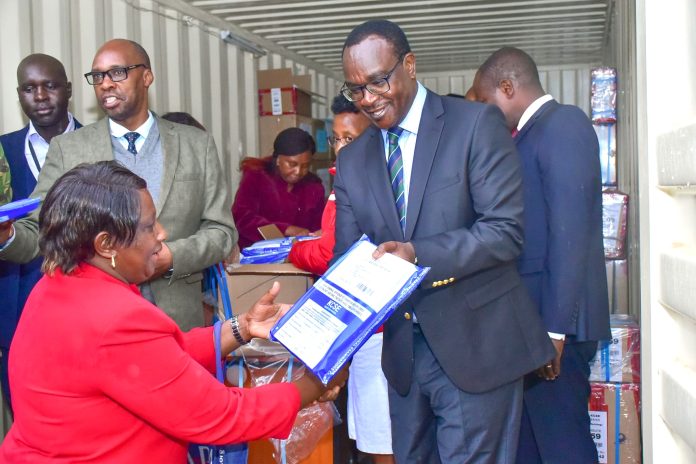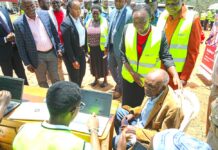
- The period between setting target means and the official release of results is riddled with meticulously planned cheating schemes.
- Cartels ensure that leaked materials reach only the well-connected or financially compliant schools.
- The result is a system that rewards manipulation over merit, eroding public confidence in what should be the country’s most trusted measure of academic achievement.
Malpractices in the Kenya Certificate of Secondary Education (KCSE) examinations follow a script strikingly similar to that of elections in many African states—designed to appear authentic while concealing deep-seated manipulation. The formula is simple yet effective: build expectations, manipulate the process, and finally create confusion to disguise predetermined outcomes.
As outlined in Episode 1, the malpractice cycle begins long before the exams. Schools start projecting inflated mean scores on banners and social media platforms to condition parents and stakeholders into believing that success is inevitable. These projections, often unrealistic, prepare the ground for the eventual manipulation of results once the exams are done. This second episode focuses on how cheating is orchestrated during the pre-examination phase.
The Early Stages of Leaks
The period between setting target means and the official release of results is riddled with meticulously planned cheating schemes. These are executed through organized syndicates involving school principals (center managers), teachers, invigilators, supervisors, security officers, cooks, rogue KNEC insiders, and even candidates themselves.
Exam leakages often start as early as June or July of the exam year, once the papers have been finalized. Some exam setters act as informants, subtly sharing crucial content with colleagues and students under the pretense of offering “subject revision.” They may even visit schools as “senior examiners” or “subject experts,” disguising their illicit disclosures as legitimate academic mentoring.
Cartels ensure that leaked materials reach only the well-connected or financially compliant schools. In these institutions, photocopied papers are administered, revised, and then destroyed to eliminate evidence.
Practical Exams: A Major Loophole
The handling of practical exam materials presents another major vulnerability. During distribution at KNEC storage containers, live copies of exams are sometimes smuggled out under the guise of “advance instructions.” Photographs of these papers are taken and circulated, giving privileged schools and students a decisive advantage.
Even confidential marking schemes have occasionally leaked. Markers report instances where students reproduce answers identical to the marking guide—word-for-word, including alternative answers—clear signs of prior access. Fearing victimization, examiners often choose silence over exposing such irregularities.
Social Media and Underground Networks
Social media platforms—particularly WhatsApp groups—have become vital tools for exam leak syndicates. These groups operate at local, regional, and national levels, facilitating the distribution of leaked materials. Principals who subscribe to the scheme encourage their teachers to join such forums and even sponsor them to attend “subject meetings” where leaked questions are exchanged. Upon returning, teachers insert these questions into internal revision tests, preparing students for what they will later face in the actual KCSE.
Manipulating Invigilation Assignments
Manipulation extends to the invigilation process. Principals often lobby or bribe to secure friendly supervisors and invigilators through connections with sub-county TSC officials. This ensures that sympathetic officers oversee their centers, allowing irregularities to proceed unhindered. Even where external supervisors are deployed, coordinated bribery involving security personnel ensures silence in exchange for cash.
Teachers as Facilitators
Teachers play a pivotal role in these schemes. Using leaked content disguised as “revision materials,” they coach students through highly specific, last-minute sessions that mirror actual exam questions. Such targeted preparation leaves little to chance—students enter the exam rooms already knowing much of what awaits them.
A Systemic Weakness
The persistence of pre-examination leaks underscores serious flaws in Kenya’s exam security protocols. Without decisive interventions—such as tighter monitoring of printing, storage, and distribution processes—the integrity of the KCSE remains under grave threat. The result is a system that rewards manipulation over merit, eroding public confidence in what should be the country’s most trusted measure of academic achievement.
YOU MAY ALSO READ: KCSE Malpractices – Episode 1: The General Game Plan
Prof. Okoth is a Professor of Chemistry at the University of Eldoret (UoE), a former Vice Chancellor and a Quality Assurance Expert. His email: okothmdo@gmail.com









































